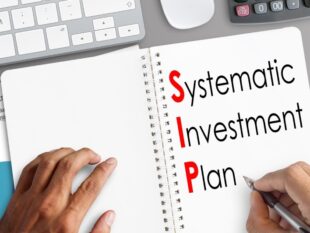Mastering Emotional Intelligence: The Key To C-Level Leadership Excellence
by Abdul Aziz Mondal Job & Career Published on: 04 December 2023 Last Updated on: 05 December 2023

Emotional intelligence is crucial for success as a C-level executive. Highly emotionally intelligent leaders possess the ability to recognize and understand their own emotions. At the same time, they understand it as well as those of others. They use this information to guide their actions, decisions, and communication. These skills contribute to building trust within teams, navigating change, inspiring innovative thinking, and problem-solving. Strong emotional intelligence also helps leaders manage conflict. It also helps create an inclusive work environment and identify potential areas for growth and development among team members.
In this article, we will delve into the various ways emotional intelligence can benefit senior executives holding down chief jobs. We will also explore the key elements of emotional intelligence – self-awareness, self-regulation, motivation, empathy, and social skills. Through case studies, expert insights, and practical tips, we will provide a thorough understanding of the role of emotional intelligence. We will see how it helps create successful leadership and offer guidance on harnessing this powerful tool. The efficacy of emotional intelligence in improved performance and effectiveness in the dynamic world of C-level leadership is huge. We will take a look at everything here. So, join us as we uncover the secrets to mastering emotional intelligence. The role of EI in leveraging transformative potential and shaping your leadership journey will also be the prime focus.
The Role Of Emotional Intelligence In C-Level Leadership Success
Lets understand the role of emotional intelligence in C-level leadership success.
Developing Self-Awareness
The first component of emotional intelligence, self-awareness, is comprehending and pinpointing your emotions. The next component is observing the impact of EIs on your thoughts, decision-making, and behavior. By developing emotional self-awareness, you can lead with greater authenticity and adaptability:
1. Practice Reflection and Introspection:
Allocate time for regular self-reflection, identifying emotions at any given moment. Also, examine their potential influence on your actions and decisions. Journaling can be a useful tool for promoting introspection and cultivating self-awareness.
2. Seek Feedback from Trusted Sources:
Request feedback from colleagues, mentors, and peers to provide an objective perspective on your emotional tendencies and management style. Constructive feedback can reveal blind spots and opportunities for growth.
3. Understand Your Triggers:
Identify situations, people, or events that prompt strong emotional reactions. Also, develop strategies to manage these emotions and minimize their impact on your leadership.
Mastering Self-Regulation
Effective emotional self-regulation enables you to manage and express your emotions in a healthy and appropriate manner that aligns with your leadership goals:
1. Develop Healthy Coping Mechanisms: Practice techniques such as deep breathing, mindfulness, and visualization to regulate your emotions and maintain composure, even in high-pressure situations.
2. Cultivate a Solutions-Oriented Mindset: Rather than becoming overwhelmed by emotions, shift your focus toward identifying steps to address challenges or conflicts. Approaching situations constructively can help manage emotions and inspire thoughtful action.
3. Adapt Communication Styles: Adjust your communication style in response to the emotions and needs of others to foster productive dialogue and avoid escalating conflicts.
The be-all and end-all of an organization is to attain a competitive edge over different companies. It can help you in nourishing the skills required to become competitive. The efficacy of communication skills remains one of the main elements of leadership development.
This is the reason leaders go through different training. They also learn to use differnet tools to foster the development of communication.
Fostering Empathy And Compassionate Leadership
Empathy, another essential component of emotional intelligence, refers to the ability to understand and share the feelings of others. By practicing empathy in your C-level leadership, you
1. Active Listening and Presence: Engage in active listening and be fully present when communicating with others, creating an open and safe environment for them to express their thoughts and emotions.
2. Validate and Acknowledge Emotions: Validate the emotions of your team members by acknowledging their feelings and demonstrating understanding. Showing empathy can strengthen trust and nurture an atmosphere of psychological safety.
3. Encourage Open Dialogue: Foster a workplace culture that encourages open communication and constructive feedback to ensure that your team members feel heard and valued.
These elements play a major role in understanding the impact of empathy and compassion in leadership development. Indeed, they play a super important role in shaping the character of a leader.
Enhancing Social Skills For Effective Leadership
Strong social skills are crucial for C-level leaders as they navigate various interpersonal relationships, from managing teams to collaborating with partners and negotiating with clients:
1. Build Rapport and Trust:
Establish rapport and trust within your organization and with external partners by consistently demonstrating empathy, integrity, and reliability in your actions and communication.
2. Demonstrate Adaptability and Flexibility:
Cultivate a versatile, adaptable leadership style to different situations, individuals, and working styles, allowing you to effectively manage a diverse range of team members and business partners.
3. Practice Effective Conflict Resolution:
Employ tact, diplomacy, and emotional intelligence when addressing conflicts or difficult conversations. This alleviates tension, encourages open communication, and enhances collaboration among team members.
You can relate how social skills and effective leadership play a pivotal role in shaping an individual’s leadership skills. Therefore, leadership within organizations of diverse scales invests in developing the same skills within the leadership. It is important to understand the impact of the overall leadership within an organization.
Unleashing The Power Of Emotional Intelligence In C-Level Leadership
Embracing emotional intelligence as a core leadership competency can significantly contribute to the success of C-level executives, providing a practical framework for navigating complex challenges in the business world. By developing self-awareness, mastering self-regulation, fostering empathy, and enhancing social skills, you can revolutionize your leadership approach, inspiring a high-performing, collaborative, and engaged workforce.
The journey to mastering emotional intelligence is one of continuous learning and growth, but the rewards are countless – from improved decision-making and team cohesion to enhanced personal well-being and long-term organizational success. As a C-level executive, invest in honing your emotional intelligence skills and prepare to unlock your full leadership potential, creating a lasting impact on your organization and the people you lead.







































































































